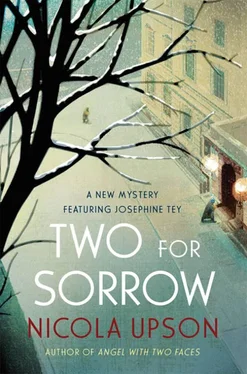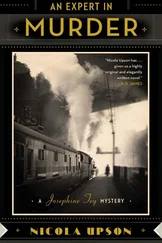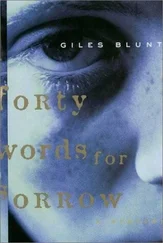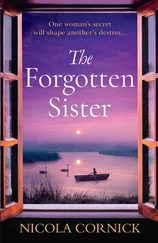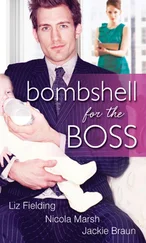Vale looked at him warily. ‘Surely you know what I said to Lucy if you’ve been exchanging letters at her bedside?’
Penrose just smiled. ‘Eleanor Vale, you will now be formally charged with the murders of Celia Bannerman, Marjorie Baker, Jacob Sach and Lucy Peters, and taken to a …’
‘You bastard,’ Vale shrieked, standing up and shoving the table hard into his stomach. She lashed out at his face, but Fallowfield was too quick for her, catching her by the wrist as her arm came down. She screamed in agony as the sergeant’s fingers tightened around the blistered skin, but somehow she still managed to pull away, her rage exploding in a stream of abuse as she grabbed hold of a chair and went for them again. This time, though, Penrose was expecting the attack: he moved to one side, and the chair crashed harmlessly into the door while he held Vale’s arms behind her back, pinning her against the wall for long enough to give Fallowfield time to get the handcuffs on. Later, he would regret showing any emotion at all, but as he walked her into the corridor and gave instructions for her to be taken downstairs, his anger was the mirror image of hers: ‘I hope you rot in hell for what you’ve done,’ he said.
Josephine sat at the front desk of New Scotland Yard, wondering what Archie wanted. She had been surprised to get his message, but relieved to have any excuse to get out of the Cowdray Club for an hour or two. The atmosphere there was unbearable: crime reporters given a tip-off by their society-page colleagues were the latest addition to Cavendish Square, and the arrival of the mortuary van to remove Lucy’s body was an image that no one was likely to forget, but the sadness ran deeper even than that. Everywhere she looked, Josephine saw her own sense of betrayal reflected in the faces of the other members; a professional mourning ran throughout the building, a feeling amongst the women that they had battled governments and legislation for so many years, only to see what they had worked for tarnished from within. They had been let down by one of their own, and it left them all feeling angry and foolish and guilty; personally, Josephine couldn’t remember a time when her trust had been more comprehensively destroyed.
When Archie came down to fetch her, he looked pale and exhausted. ‘I won’t bother to ask how you are,’ she said. ‘You’ll only lie, and anyway, I can see it in your face.’
‘Let’s just say it’s been an eventful night.’
‘How’s your policewoman?’
She saw him smile at her phrasing of the question. ‘She’ll be fine. She’s shaken, obviously, and she took a nasty cut to the chest, but thank God for the College of Nursing. Miriam Sharpe was wonderful.’
There was so much she wanted to ask him about what had gone on overnight, but she knew it would put him in an impossible position. ‘So why have I been summoned to the Yard?’
‘Come with me a minute.’ He led her out on to Victoria Embankment and pointed across the road.
‘What am I looking at?’
‘Do you see the woman on the bench over there?’ She nodded. ‘That’s Nora Edwards.’
Josephine stared in astonishment. ‘What’s she doing there?’
‘We released her straight away last night and took her home, but she was back a few hours later. I noticed her when it started to get light, but God knows how long she’d already been sitting there. I can only suppose it’s because she knows we’ve got her daughter’s killer here.’
‘I thought you said she didn’t care about Marjorie?’
‘Either I was wrong or she was. And going back to that place on her own with everything that’s happened can’t be easy. She’s had enough gossip and prejudice in her life, and now people are going to start on her all over again.’ Josephine knew exactly what he was going to say, and she tried not to look as horrified as she felt. ‘Anyway, I thought you might want to talk to her. I can’t arrange it—it wouldn’t be right now—but there’s nothing to stop you going over there and striking up a conversation.’
Josephine was torn between grabbing the only chance she would ever have to speak to someone who had been at Claymore House, and a cowardly reluctance to put herself through what was bound to be an ordeal. ‘I’m sure she’s been through enough without an interrogation from me,’ she said doubtfully. ‘Anyway, I was going to drop the whole thing. It’s too painful now; too many people have been hurt.’
‘Have you told your publisher that?’ he asked cynically. ‘You’ve got the story of the decade. It’s up to you, though: if you don’t think it’s appropriate, that’s fine, but I didn’t want you to miss the chance to satisfy your own curiosity, whether you go ahead with the book or not.’ As she hesitated, he added: ‘Just don’t tell her that I sent you. She’s hardly likely to be open with you if she knows you’re a friend of the person who’s spent the last two days accusing her of killing her daughter and her husband.’
‘So how will I explain who I am?’
‘You’ll think of something.’ He smiled, recognising that she had made her decision. ‘Come and see me before you go, and let me know how you get on. I’ll tell the chap on the desk to expect you.’
Josephine crossed the road, and played for time by buying two cups of coffee from Westminster Pier. She went towards the bench, but lost courage and walked straight past, then realised how ridiculous her behaviour would seem if she finally did announce herself. Before she could change her mind again, she retraced her footsteps and stopped in front of Edwards. ‘This is going to sound very odd coming from a complete stranger,’ she said quietly, ‘but I’m so sorry about Marjorie.’
The woman looked up at her in astonishment. ‘What do you know about it?’
She must have been in her fifties, and it took Josephine a second or two to remove herself from the moment in which she had been so absorbed and add thirty-odd years to the Nora Edwards of her story. Feeling self-conscious as Edwards continued to stare at her, she held out the coffee. ‘Marjorie worked for some friends of mine,’ she said. It sounded feeble, even to her, but it was the best that she could do. ‘Can I sit down for a minute?’ Edwards shrugged, and took the cup. ‘I never met your daughter, but I gather she was very talented.’
‘Was she? You know more than I do. Everyone seems to be talking about someone I don’t recognise.’ She laughed bitterly. ‘And no one talks about Joe at all, as if his life counted for nothing.’ Josephine was silent: it was true, she thought—Marjorie’s father had hardly been mentioned over the last few days, except with regard to his true identity. They had all been happy to condemn Celia’s valuing of one life above another, but everyone betrayed their own innate prejudices at a time of grief. ‘Who are you, anyway?’ Edwards asked.
‘My name’s Josephine, and I realise how this may look, but I’m writing a book about Amelia Sach and Annie Walters.’ Edwards put the coffee down and started to get up, but Josephine caught her arm. ‘I knew Lizzie,’ she said. ‘We were at a school in Birmingham together, and I was there when she died. It seemed to me that she was another victim of Amelia’s crimes and all the publicity that followed, but there were plenty of other people whose lives were ruined by what happened—you and your husband more than most, I imagine. That’s what the book’s about. If you don’t want to talk to me, I understand and I’ll leave you alone—but let me be the one to go, not you. Please, sit down.’
‘Just passing, were you?’ Edwards asked sarcastically, glancing back towards Scotland Yard, but some of the suspicion had gone from her face and Josephine sensed that she’d chosen the right approach.
Читать дальше
